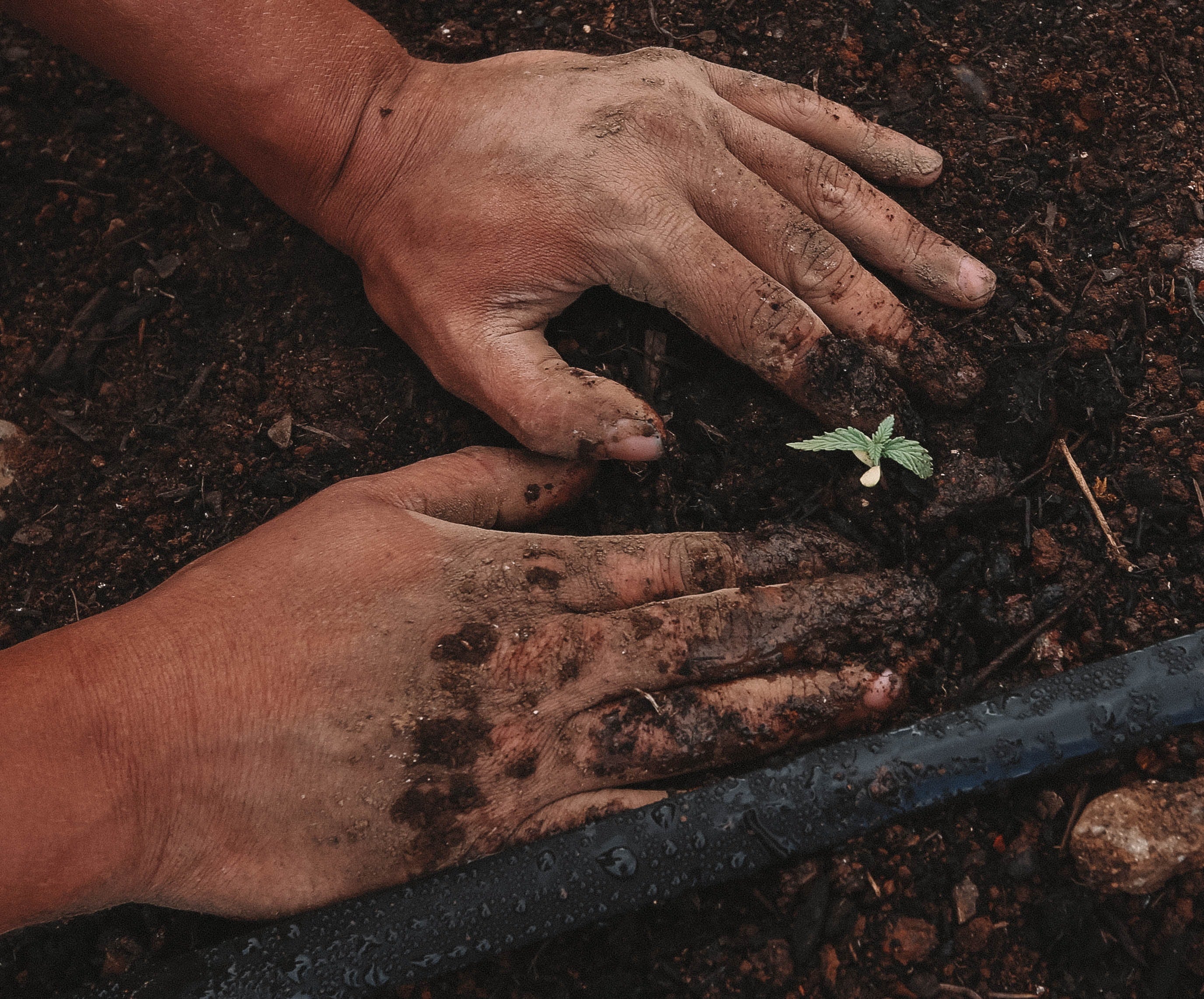Eco Friendly Gardening is more than just a hobby; it's a way to connect with nature, grow your own food, and even contribute to a healthier planet. By adopting eco friendly gardening practices, you can minimize your environmental impact and promote sustainability right in your backyard. Here are five simple yet effective methods to make your garden greener and reduce your carbon footprint.
1. Choose Organic and Heirloom Seeds for Eco Friendly Gardening
Why Organic and Heirloom Seeds Are Better
Organic and heirloom seeds are free from synthetic chemicals, GMOs, and harmful pesticides, making them healthier for both you and the environment. Unlike hybrid or genetically modified seeds, heirloom varieties have been passed down through generations, preserving biodiversity and encouraging a wider range of plant species. This helps maintain a resilient ecosystem that can better withstand pests and diseases, which is essential for eco friendly gardening.
How to Select the Best Seeds for Your Eco Friendly Gardening
- Look for organic certification: This ensures that the seeds are grown without synthetic pesticides or fertilizers.
- Choose heirloom varieties: These seeds produce plants that can be regrown year after year, promoting sustainability in your eco friendly gardening efforts.
- Support local seed suppliers: Purchasing from local farmers or small seed companies reduces the carbon footprint associated with transportation.
By choosing organic and heirloom seeds, you can create a more sustainable garden that supports biodiversity and natural pollinators, further enhancing your commitment to eco friendly gardening.

2. Practice Composting for Eco Friendly Gardening
The Benefits of Composting for the Environment
Composting is one of the most eco friendly gardening practices you can adopt. It reduces the amount of waste sent to landfills, cuts down on methane emissions, and provides your garden with nutrient-rich, natural fertilizer, which is perfect for eco friendly gardening. This process recycles organic waste like food scraps, yard clippings, and leaves into compost that improves soil structure and encourages healthy plant growth, making it a cornerstone of eco friendly gardening.
How to Start Composting for Eco Friendly Gardening
- Choose a compost bin: You can use a simple open pile, a tumbling composter, or a closed bin, depending on your space and needs.
- Layer green and brown materials: Green materials (like fruit scraps and grass clippings) provide nitrogen, while brown materials (like dry leaves and cardboard) provide carbon. A good balance is essential for successful eco friendly gardening.
- Turn your compost regularly: This aerates the pile and speeds up the decomposition process.
- Use finished compost: Add it to your garden beds, potted plants, and even your lawn for healthier soil and better growth.
3. Implement Water Conservation Techniques
Water Conservation Is Key to Sustainable Gardening
Freshwater is a precious resource, and conserving water in your garden can make a significant impact. Eco friendly gardening water management practices reduce waste.
Water-Saving Strategies for Your Garden
- Install a rainwater harvesting system: Collecting rainwater in barrels or tanks reduces the need for using tap water, which is often treated with chemicals.
- Use drip irrigation: This system delivers water directly to the plant roots, minimizing evaporation and runoff, an essential technique for eco friendly gardening.
- Mulch your garden beds: A thick layer of mulch retains soil moisture, reduces the need for frequent watering, and also helps control weeds.
- Water early in the morning or late in the evening: This reduces water loss due to evaporation.
By using water wisely, you can maintain a thriving garden while conserving this vital resource, reinforcing your commitment to eco friendly gardening.

4. Embrace No-Till Gardening
What Is No-Till Gardening?
Traditional gardening methods often involve tilling the soil, which can disrupt the natural structure, harm beneficial microorganisms, and increase soil erosion.
Benefits of No-Till Gardening
- Improves soil health: The undisturbed soil structure allows beneficial microbes and earthworms to thrive.
- Prevents soil erosion: Without tilling, the soil remains covered.
- Captures carbon in the soil: Healthy, carbon-rich soil helps sequester carbon dioxide.
How to Start a No-Till Garden
- Cover your soil: Use organic mulch or cover crops to protect the soil and improve fertility.
- Plant directly into the soil: Simply dig small holes for your seeds or seedlings instead of turning over large areas of soil.
- Add compost and organic matter: Layer compost, aged manure, or leaf mold on top of the soil to nourish your plants without disturbing the earth below.
Grow Your Own Food with Seed Armory's Heirloom Seed Vault Packs!
Are you ready to take control of your food supply and grow a garden that thrives year after year? Seed Armory’s Heirloom Seed Vault Packs offer a comprehensive collection of premium, non-GMO seeds that are perfect for gardeners, homesteaders, and preppers who are passionate about eco friendly gardening.
Why Choose Seed Armory’s Heirloom Seed Vault Packs?
- 100% Non-GMO & Open-Pollinated: Our seeds are non-hybrid and open-pollinated, so you can save seeds from each harvest and replant season after season, a key principle of eco friendly gardening.
- Expertly Curated Varieties: We’ve chosen heirloom varieties that are proven to grow well in a range of climates, ensuring you get reliable, eco friendly gardening.
- Packed for Long-Term Storage: Our seed vaults are designed to last. Each seed is hermetically sealed and stored in resealable, moisture-resistant packaging for maximum shelf life, so you're prepared for whatever the future brings.
- Perfect for Self-Sufficiency: Whether you’re looking to start a backyard garden, enhance your homestead, or prepare for emergencies, these seed vault packs provide everything you need to grow your own food and embrace eco friendly gardening.
Our Best-Selling Seed Kits Include:
- The Ultimate Seed Vault: Over 100 varieties of heirloom seeds to grow a full range of vegetables, herbs, and fruits.
- Homestead Seed Vault: A versatile selection of seeds that are perfect for backyard and homestead gardens.
- Emergency Survival Seed Kit: Packed with essential, nutrient-rich crops to ensure food security during tough times.
Whether you’re planting now or storing for the future, you’ll have peace of mind knowing you’re growing real, wholesome food in line with eco friendly gardening principles.
Shop Now & Build Your Garden of Tomorrow! Click Here
5. Use Natural Pest Control Methods
The Problem with Chemical Pesticides
Chemical pesticides and herbicides can harm beneficial insects, pollute waterways, and damage the natural balance of your garden's ecosystem. Switching to natural pest control methods can protect your plants without putting the environment at risk, making it an essential aspect of eco friendly gardening.
Natural Ways to Keep Pests at Bay
- Encourage beneficial insects: Ladybugs, lacewings, and predatory beetles feed on harmful pests. Plant flowers like marigolds, lavender, and dill to attract them.
- Use companion planting: Some plants, like basil and marigold, repel certain pests when planted next to vulnerable crops, promoting a more harmonious and eco friendly gardening environment.
- Apply homemade sprays: Natural solutions like neem oil, garlic spray, and soap water are effective against many common garden pests.
- Introduce physical barriers: Row covers, netting, and garden fleece can protect your plants from insects and larger pests without the need for chemicals.
By using these natural methods, you’ll cultivate a healthier, more balanced garden that supports local wildlife and reduces your dependence on harmful chemicals, aligning perfectly with eco friendly gardening practices.
Grow Green, Live Green, Eco Friendly Gardening
Adopting eco friendly gardening practices can transform your garden into a haven for nature. From choosing organic seeds to conserving water and using natural pest control, every small change contributes to a bigger, greener future. Whether you’re an experienced gardener or just starting out, these simple strategies can help reduce your carbon footprint and make your garden more sustainable.











